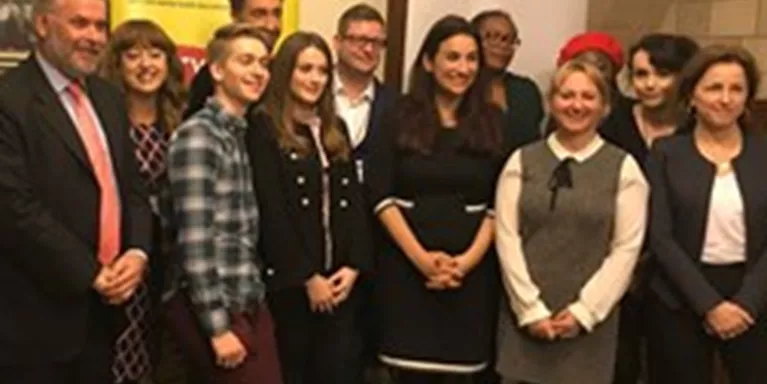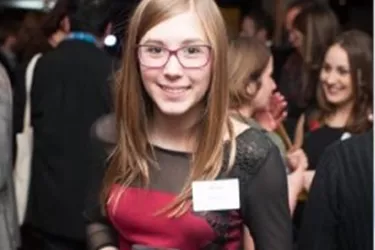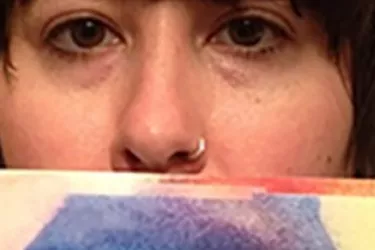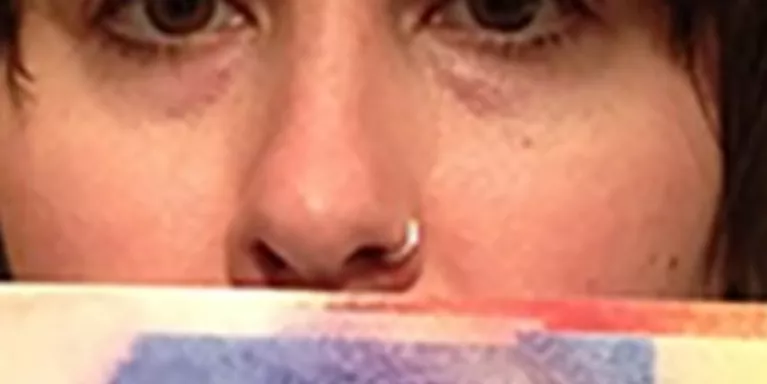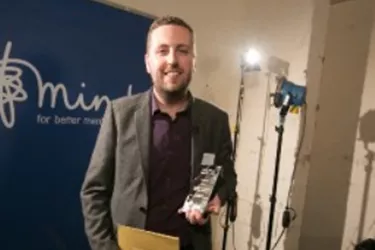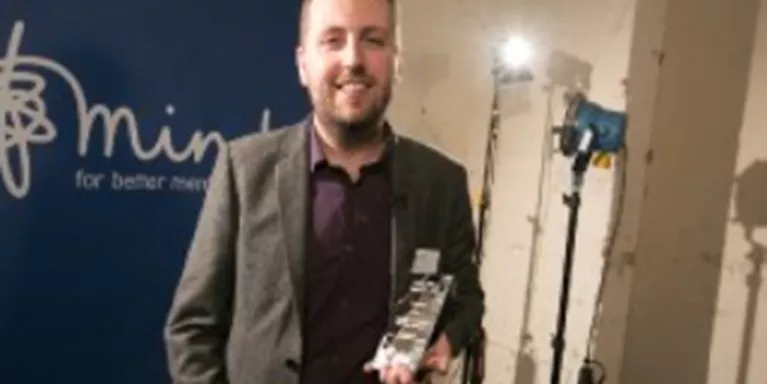My review: 'The Not So Secret Life of the Manic Depressive...'
Paul reviews the documentary 'The Not So Secret Life of the Manic Depressive: 10 Years On' and shares his own experience of living with bipolar.
Please take care when reading this blog, it includes suicidal themes
My father and I both live with bipolar. We know only too well its highs and lows and the programme clearly highlighted the difficulties. It also reflected the trauma it has on our loved ones.
Without my mother’s support, our support for one another and the support of my partner, my father and I would not be the people we are. This collective support is essential to our wellbeing. In our eyes my mother is our hero, our constant and our confidant.
"People are, slowly, becoming more knowledgeable of mental health...and more understanding."
Stephen and the other contributors showed the guilt and shame people can feel around their mental illness: how they can have a belief that their skills are meaningless and of no purpose, how their futures can seem hopeless and how they can carry a huge amount of physical and mental pain.
Ten years on, society has gained a better understanding of mental health. People are, slowly, becoming more knowledgeable of mental health conditions, and more understanding of the difficulties people experience. This is in part thanks to the government’s Time to Change initiative, the hard work of many mental health charities and the bravery of those who speak out.
However, as Dr William Shanahan highlighted there is still some ignorance around bipolar:
“It’s easy to think that his slightly manic presentation is part of his personality and therefore when he says he’s down, it’s fake; that somehow it’s an act.”
Cordelia’s story highlighted how important early diagnosis is in accessing the right treatment. The narrator emphasised that this is not always possible and that many experience difficulties in getting the correct diagnosis - in some cases taking up to 8 years.
"...support, medication, diet, exercise, mindfulness...psychological strategies ..enable us to take control of our bipolar"
Stephen talked with Dr Shanahan about his experiences of cyclothymia, something I’ve experienced where your mood can fluctuate by the minute. They talked about manic episodes and how these are not always a pleasant experience and in fact can be a heightened state of agitation. The body becomes fuelled with adrenaline, surges of energy and you can physically experience increased heart rate, pins and needles and many other physiological sensations.
Alika’s story showed the potentially devastating effects of ignorance of mental health on social media and the power it can hold over people. Those off-the-cuff comments from ill-informed viewers can leave long lasting scars.
"...we are normal!"
The stories showed that during the extreme lows, even doing the basics is not possible. From my own experience, it’s a strange and surreal state, almost like things aren’t real and what you normally understand makes no sense at all. You’re disconnected from the world. The light has been turned off.
In these moments death can feel like the only option and at 16 years of age it’s what I felt when I attempted to take my life. Thankfully now my life is very different.
Scott’s journey told the story that many share around the stigma of taking medication: fear of zombie like feelings, increase in weight, feeling ugly, slowed cognitive processes, feeling emotionless and experiencing night terrors. Many have a pre-disposition to self-medicate with alcohol and drugs to quieten the distress and are reluctant to take the medications due to the side effects. However Scott’s story also showed how finding the right medication can help. He spoke about feeling calmer, not over thinking things and that he was able to cope better with his life. This highlighted for me was the need for clinicians to work with a person holistically - fully supporting them as a whole person.
"It’s important for us to remember that the brain gets sick just like the body..."
My father and I know it’s a sophisticated programme of support, medication, diet, exercise, mindfulness and many other psychological strategies which enable us to take control of our bipolar and not allow it to control us. Once we accept the illness and stop fighting the cycle, it allows us to have choices and we are able to connect with others and lead more purposeful lives. As we say, we are normal!
I thought it was really positive when Rachel and her nurse, Paul, were discussing her treatment options and he asked her what she would be happy to agree to in order to keep herself safe. Person centred care.
One of the helpful strategies Cordelia shared was keeping a mood diary. Looking after yourself and being aware of your stressors and knowing what you can do to filter those stressors can really help maintain wellbeing. When individuals stop fighting their symptoms they take back control and gain wisdom to self-manage.
Mental health is something we deal with every day of our lives, it’s a full time job and we need to become masters of our own wellbeing
Both Alika and Rachel shared how they had found strength in sharing their stories to educate and to support others. Acceptance is paramount to anyone’s recovery but that is a whole process in itself which needs careful guidance and support from those who know best - in my opinion peer support from those with lived experience.
"The programme highlights how important it is to invest in our mental health services."
Their stories showed how employment can help. In my job as a Senior Peer Support Specialist it’s what drives me to help others, working with people to help them understand their difficulties and learn coping strategies.
I eat, breathe and sleep mental health. It’s my passion. My experiences enable me to be more compassionate and triumph over difficulties. The programme has inspired me to start vlogging my daily journeys.
"Bravo to the BBC for their informative and insightful programme."
It’s important for us to remember that the brain gets sick just like the body does, it’s not a choice, never judge a book by its cover and think before you pass your next judgement.
All of the contributors’ candour was truly remarkable. They showed such strength in coping and dealing with both physical and mental trauma and as a viewer you really felt for them.
The programme highlights how important it is to invest in our mental health services and to stop failing people by making cut backs.
The government must really commit to a parity of esteem to that of physical health and recognise as Stephen poignantly stated:
“The submerged minority but a huge one”.
Bravo to the BBC for their informative and insightful programme. Thank you especially to Stephen Fry, Cordelia Feldman, Alika Agidi-Jeffs, Scott Martin and Rachel Edwards for their courage, sincerity and honesty in allowing us as the viewers to walk but a few steps in their shoes.


Information and support
When you’re living with a mental health problem, or supporting someone who is, having access to the right information - about a condition, treatment options, or practical issues - is vital. Visit our information pages to find out more.
Share your story with others
Blogs and stories can show that people with mental health problems are cared about, understood and listened to. We can use it to challenge the status quo and change attitudes.











